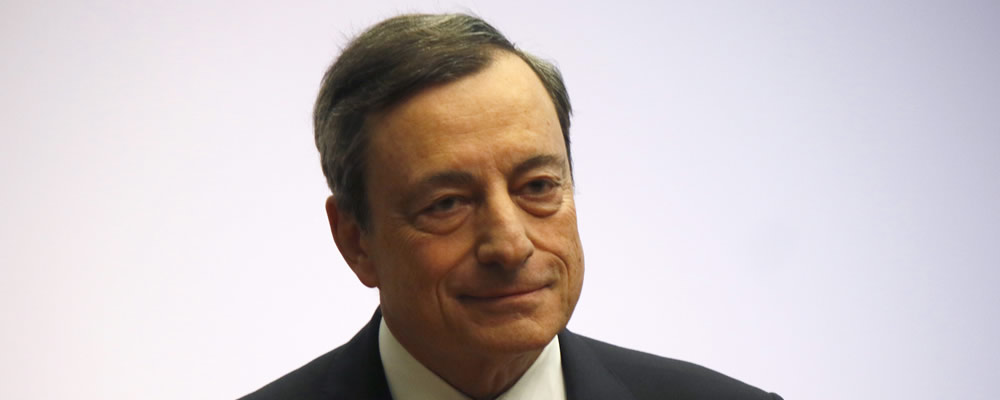The Euro to Australian Dollar (EUR/AUD) exchange rate has risen by 0.3% today, following an eventful press conference from European Central Bank (ECB) President Mario Draghi.
Mr Draghi stated that the ECB’s optimistic inflation outlook had not changed, and also didn’t talk down previous positive remarks.
While hardly a dramatic event, the conference nonetheless raised hopes that ECB policy tightening could be on the way in the coming months.
(First published 25th January, 2018)
Rising German Confidence Stats Fail to Boost EUR/AUD Exchange Rate
The Euro to Australian Dollar exchange rate (EUR/AUD) has fallen by -0.3% today, although the most recent Eurozone data has been positive.
German data has shown rising consumer confidence for February, along with greater optimism about the current business climate.
The GfK consumer confidence reading has risen from 10.8 points to 11, which was an unexpected result.
Additionally, IFO business climate and current conditions readings have also increased, which have created a positive image of the German economy at the start of 2018.
Euro Dragged Down by Worries about ECB Policy Meeting
While the German economic data should have triggered a Euro to Australian Dollar rise, traders have ultimately been more concerned about upcoming ECB news.
The European Central Bank (ECB) will be holding its first interest rate decision of 2018 this afternoon and could offer forward guidance on monetary policy.
The ECB has left interest rates flat at 0% since March 2016, but some Euro traders hope that a change could be on the way this year.
The primary concern is that ECB President Mario Draghi won’t suggest that the ECB could start tapering off quantitative easing (QE).
QE is the ECB’s method of stimulating the Eurozone economy, via the mass-purchase of bonds and assets.
Considering the possibility of a QE reduction process, Alcentra Global Co-Chief Investment Officer Paul Hatfield has said;
‘Even though the ECB will leave interest rates unchanged today, it is at the very least going to have to start talking more seriously and clearly about when it will begin to implement cuts in its economic stimulus programme.
Having seen significant strengthening of the Eurozone economy, [ECB President] Mario Draghi will not want to see that damaged by too high an exchange rate’.
Australian Dollar to Euro Exchange Rate Rises despite Mixed Response to TPP Deal
Divisions between economists have failed to damage the Australian Dollar today, which has advanced against the Euro, Pound and US Dollar.
The antipodean currency has appreciated after it was announced that the Trans-Pacific Partnership (TPP), a multinational trading agreement, will be going ahead.
The TPP was put at risk when the US withdrew from the deal in early 2017, but has since been revived thanks to the efforts of remaining member nations.
There is uncertainty about how much the deal will benefit the Australian economy, but the general consensus is that the TPP will boost national economic growth.
Putting the size of the deal into context, Capital Economics economists Paul Dales and Kate Hickie said;
‘Now $12bn sounds a lot to you and me but, relative to the size of the [Australian] economy, it’s not.
It amounts to just 0.5% of real national income. That’s smaller than the projected boost to the incomes of the other 10 nations [involved in the trade deal].
ECB President’s Comments could Trigger EUR/AUD Exchange Rate Turbulence
Looking ahead to this afternoon, most traders will be focusing on ECB President Mario Draghi when he gives a press conference following the bank’s meeting.
If Draghi suggests that the strong Euro is a hindrance on continued Eurozone growth and stability, the EUR/AUD exchange rate could decline.
The next Australian economic news to watch out for will come on 30th January, when the NAB business confidence reading for December comes out.
Business confidence is expected to have risen during the month, so the Australian Dollar could appreciate on the news.
